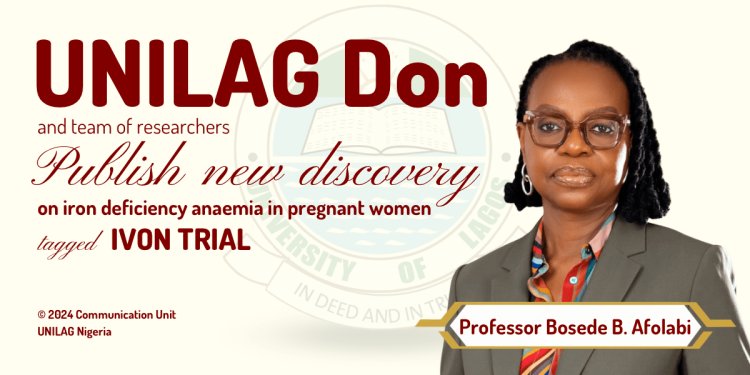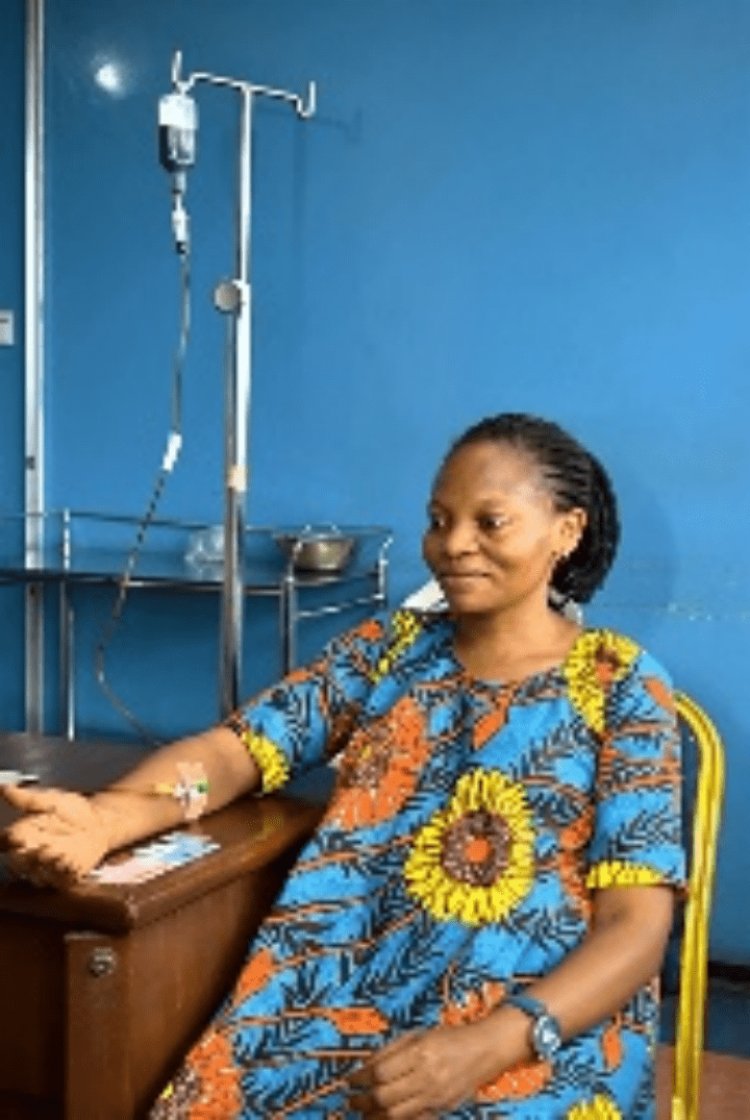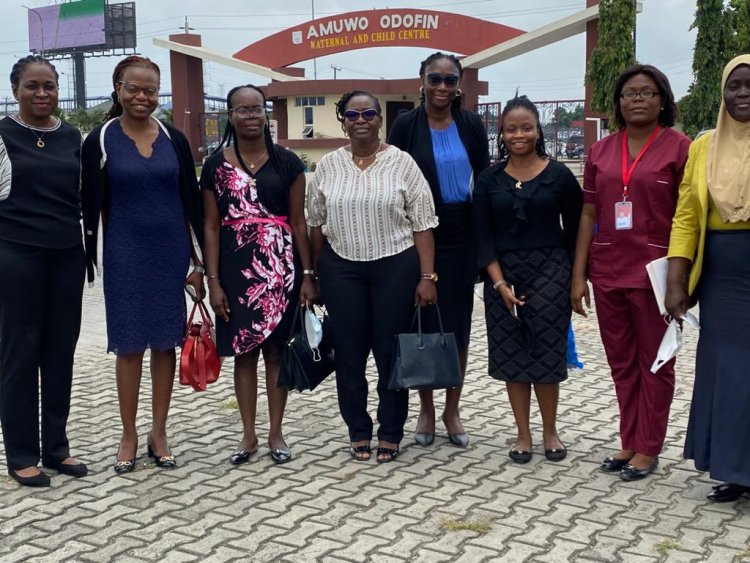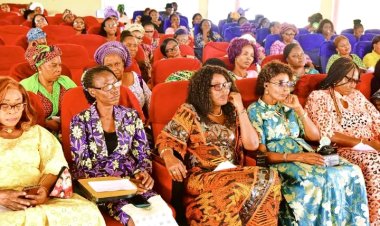UNILAG-Led Research Team Discovers Safer and More Effective Treatment for Anaemia in Pregnant Women
A team of researchers from the College of Medicine, University of Lagos, led by Professor Bosede Afolabi, has achieved a significant breakthrough in the treatment of anaemia among pregnant women.

A team of researchers from the College of Medicine, University of Lagos, led by Professor Bosede Afolabi, has achieved a significant breakthrough in the treatment of anaemia among pregnant women. The research, conducted in collaboration with Bayero University, Kano, and the Karolinska Institutet, Sweden, tested the effectiveness and safety of a new iron treatment called ferric carboxymaltose (FCM). This treatment, administered through intravenous (IV) drip, was compared to the widely used oral iron tablet, ferrous sulphate.

The study, known as the IVON Trial, revealed that ferric carboxymaltose, a new and largely untested treatment in sub-Saharan Africa, is more effective in raising haemoglobin levels faster than iron tablets and is equally safe for both mothers and babies. The trial enrolled 1,056 pregnant women, aged 15-49 years, who were five to seven-and-a-half months pregnant and anaemic. Participants were divided into two groups, one receiving the IV drip and the other taking oral iron tablets.
The results, recently published in The Lancet Global Health on September 18, 2024, showed that the single dose of ferric carboxymaltose significantly improved haemoglobin levels within four weeks, outperforming the traditional iron tablets. It was also found to have minimal side effects and no negative impact on the babies.

Anaemia, a common cause of maternal and infant mortality in sub-Saharan Africa, affects over 40% of pregnant women in the region. The discovery of this more efficient treatment offers hope for reducing complications related to the condition. The findings could lead to wider adoption of ferric carboxymaltose in regions like Nigeria, where anaemia remains a critical public health challenge.

The research team is already in talks with Nigeria’s Federal Ministry of Health to add ferric carboxymaltose to the essential drug list, signaling a major shift in anaemia treatment for pregnant women in the region. The study was funded by the Bill & Melinda Gates Foundation and included collaboration with research institutions from Belgium, the UK, USA, and Sweden.
For more information visit https://unilag.edu.ng/?p=42048

 UBA CHIDINMA
UBA CHIDINMA 



